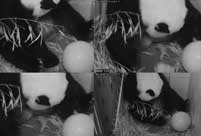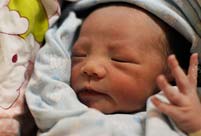 6 Chinese nurses win Florence Nightingale Medal
6 Chinese nurses win Florence Nightingale Medal
 Lady of mystery: Female SWAT team in prison disclosed
Lady of mystery: Female SWAT team in prison disclosed
 Tibetan ethnic costumes presented during tourism festival in NW China
Tibetan ethnic costumes presented during tourism festival in NW China
 Swarm of mayflies along River Danube in Hungary
Swarm of mayflies along River Danube in Hungary
 Boy pushed to air, 2 meters high by fountain in Huibei
Boy pushed to air, 2 meters high by fountain in Huibei
 Vintage cars exhibited at auto cultural festival in China's Shanxi
Vintage cars exhibited at auto cultural festival in China's Shanxi
 Military plane crashes in NE China
Military plane crashes in NE China
 Baby born to save his sister - the story of a savior sibling
Baby born to save his sister - the story of a savior sibling
 Those embarrassing copycat buildings
Those embarrassing copycat buildings
For many years, science fiction attracted few Chinese readers, but in the past few years the genre has been taking off.
When Lu Xun and scholar-educator Liang Qichao introduced the adventure novels of French writer Jules Verne as early as 1900, they hoped the ingenious, sci-fi precursors would spur interest in science in China.
At the time, the nation was falling apart and intellectuals believed science and technology would be saviors. The early stories Lu translated from Japanese sold poorly for decades.
The first best-selling Chinese science fiction was written in 1961 by children’s author Ye Yonglie who followed a child into the future where people traveled by nuclear-powered boats and wore watches that broadcast TV programs.
For years, science fiction was either marginalized or categorized as a sub-genre of children’s books. There were almost no Chinese publishers for sci-fi, except for the journal Science Fiction World, which was established in 1979 and mainly published Western works.
Many people were surprised when science fiction suddenly took off in China in the past three to five years, despite the declining readership in the West, where it originated and where fantasy now reigns.
“The genre is on the rise and it might even be called a boom,” says Yan Feng, Chinese literature professor from Fudan University and editor-in-chief of magazine Science & Vie.
“Mainstream Chinese literature has always followed the realistic tradition. And Chinese writers are not traditionally strong in imagination, which is essential in science fiction,” Yan adds.
Powerful imagination about the vast universe is what attracts university student Stella Wu to the genre, starting with the trilogy “Three Body” by engineer Liu Cixin, considered by many to be China’s best sci-fi author.
Citing Arthur C. Clarke as a major influence, Liu applies the famous mathematical predicament, the three-body problem, as the basis of an alien civilization that plans to migrate to earth since their own world is ending.

 Panda cub born at U.S. National Zoo
Panda cub born at U.S. National Zoo Top 10 Chinese provinces for the well-heeled
Top 10 Chinese provinces for the well-heeled  Fan Bingbing poses for Malaysian magazine Citta Bella
Fan Bingbing poses for Malaysian magazine Citta Bella Fairytale destinations around world
Fairytale destinations around world Wild dream: Hell-like training for bodyguard
Wild dream: Hell-like training for bodyguard  Zhang Xinyi covers COSMOPOLITAN
Zhang Xinyi covers COSMOPOLITAN China’s weekly story
China’s weekly story  The story of a savior sibling
The story of a savior sibling A collection of bizarre rooftop buildings around China
A collection of bizarre rooftop buildings around China 100th birthday of 'Little Mermaid'
100th birthday of 'Little Mermaid' Escort taskforce holds live-fire training
Escort taskforce holds live-fire training Death toll climbs to 76 in flood of NE China's Fushun
Death toll climbs to 76 in flood of NE China's Fushun Nokia's Global Headquarters: visiting a declining empire
Nokia's Global Headquarters: visiting a declining empire 2013 Taiwan Int'l Tourism Expo kicks off in Taipei
2013 Taiwan Int'l Tourism Expo kicks off in Taipei Photo story: Take a gap year
Photo story: Take a gap yearDay|Week|Month